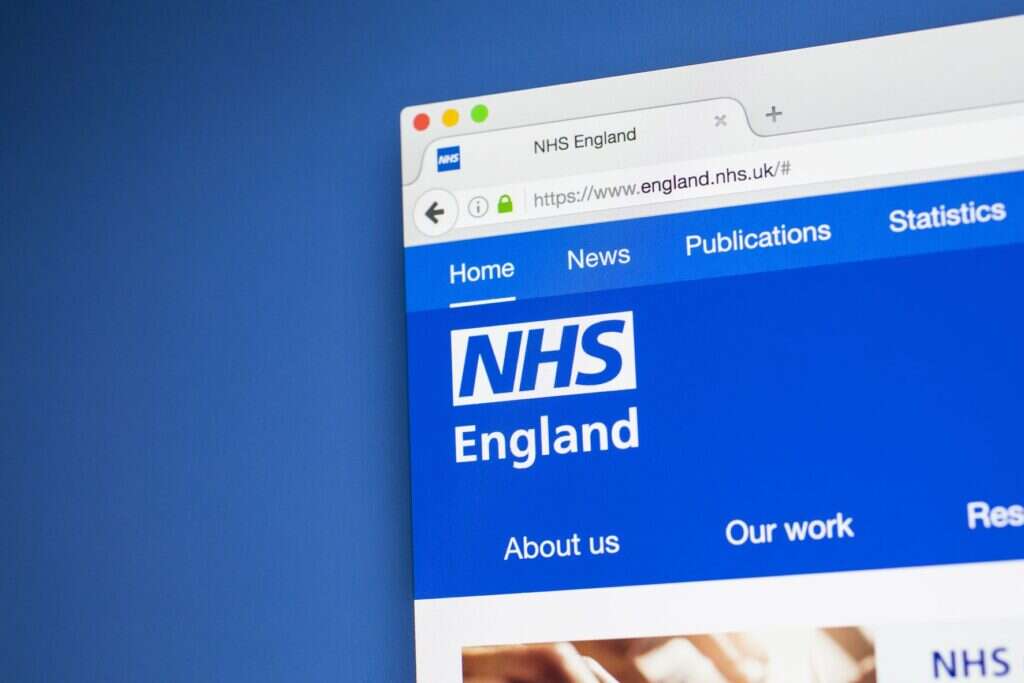
A consortium of UK technology vendors is competing with US big data business Palantir for a £480m contract with NHS England. The contract for Federated Data Platform (FDP) is widely expected to be handed to Palantir, which has already won several lucrative health service contracts. But opponents fear the involvement of the company could put patient privacy at risk.

The consortium of UK businesses already serves over 75% of the NHS, said Shane Tickell, CEO of Voror Health Technologies, one of the companies in the group.
UK consortium and Palantir head-to-head over NHS contract
The consortium is made up of several companies, including Black Pear, Eclipse and Voror Health Technologies, reports the FT. The consortium says it can provide the system at a lower price while also safeguarding UK patient data and investing profits into the healthcare system.
It says it can be a realistic alternative bidder to Palantir as it already provides services to the NHS and has reportedly set its sights on winning more health service contracts. The company’s software, Foundry, was used during the pandemic to help deliver the vaccination programme and to manage ventilators and PPE equipment. It has since won a £23.5m contract to help with cancer waiting lists.
As reported by Tech Monitor, Palantir has been involved in the development of the FDP, winning contracts worth a total of £34.5m relating to the project. But critics say the company’s secretive nature and close ties to US security agencies such as the CIA make it unsuitable to work with public bodies in the UK.
Indeed, understanding what NHS data Palantir holds is particularly difficult, says Sam Smith policy lead at campaign group MedConfidential. “We have no transparency into what the Covid-19 datastore is actually used for,” he says. “We have a list of 150 projects, with titles like ‘vaccine logistics’. But what are the cleaning mechanisms [for the data]? Is there any inherent bias?”
Such a lack of transparency makes it hard for independent bodies to verify if the data is being protected, Smith adds
A Palantir spokesperson said: “Palantir is a software company, not a data company. We build software products that our customers use to integrate, harmonise and understand their data. Our business model does not, and has never, involved collecting, using or selling personal data.”
The UK companies in the consortium say they are well-placed to deliver the platform.
“Our health service is full of idiosyncrasies that have historically proven challenging to overseas companies. We know what the NHS needs as our company is made up of former clinicians and healthcare IT engineers with decades of experience working both in it and alongside it. It means all our solutions are tailored to the specific needs of British clinicians and patients,” Black Peak CEO David Jehring said.
What is the FDP?
The contract itself is actually one-quarter of an initial, larger contract, reportedly broken up by NHS England to enhance the protection of employee and patient data. Whoever processes the FDP cannot own the privacy-enhancing technology, a measure the health body says has been put in place to promote the security of NHS data transfers.
The FDP is still the most valuable part of the now fragmented contract and Palantir has been eyeing it since last summer. The initial market engagement notice stated that the data platform would be an “essential enabler to transformational improvements” across the NHS, to be an “ecosystem of technologies and services”.
The level of data generated by the NHS is so large and so valuable that the health service has a duty to appropriately organise it so it can be used to help patients, says digital health lead at the Institute of Global Health Innovation at Imperial College London, Saira Ghafur:
“We are world-class at collecting data and we don’t have the resources to fully work with this data, Ghafur says. “So having all this infrastructure in place really moves the needle in terms of what we’re able to do. It’s almost unethical to sit on all of this data and not use it to its absolute potential.”
Ghafur says having competition for the FDP contract is positive as the NHS can “see who brings the best offer to the table”, adding: “I think it is great to have competition to see what the differences are, what can be provided and what they can have long term.”
If it does award the contract to Palantir, the NHS must consider the impact this will have on public trust in the service, Ghafur says. “One of the key pillars of doing any of this properly is to uphold the trust that exists between the NHS and the public,” she says.
“Whichever decision is made, trustworthiness and transparency must be communicated for patients and the public to believe in it.”
Tech Monitor has contacted NHS England for comment on the contract.






